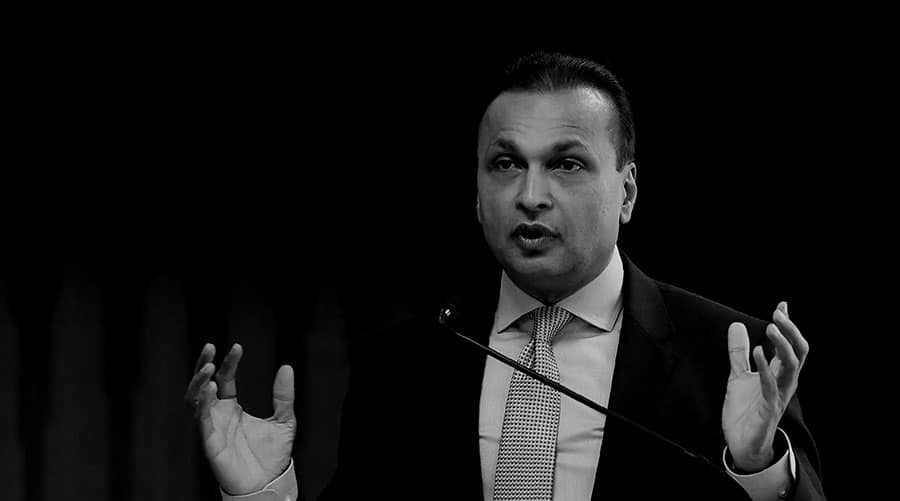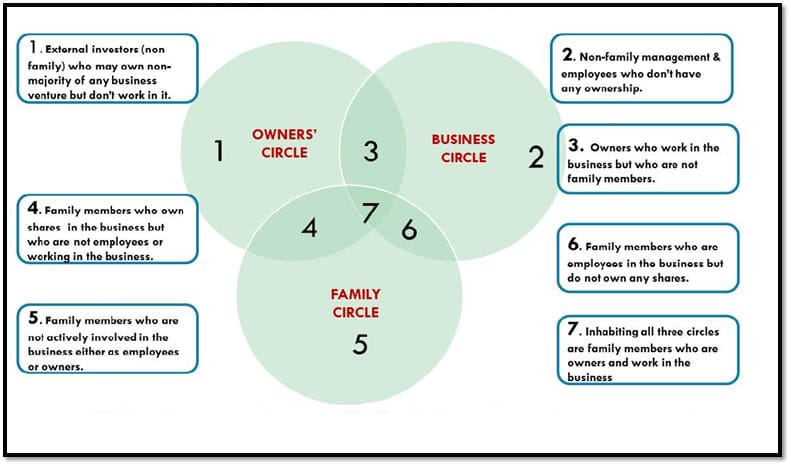Family Businesses: A Promising Niche

Family businesses can be best comprehended as an amalgam of three inter-related and overlapping domains i.e., Family, Business and Ownership (Exhibit 1).
The businesses have the immense potential not only because of the career paths and livelihood options that they create but also because of the value creation for shareholders and enduring customer relationships that they build to sustain.
“One of my key objectives is to ensure the family is proud of the company and feels a part of it. The moment the company becomes more of a financial investment for the family, we may as well go public, honestly. The family never sees the value of the equity because that gets passed on. We see ourselves simply as a steward of that equity as it moves from one generation to the next.” – H. Fisk Johnson, (Wall Street Journal, March 10, 2016)
Exhibit 1: The Family Business Domain

Source: Sauder School of Business. [1]
There is a unique tendency for micromanagement as the strategy that is adopted should favor the growth of the business and the family which at times poses unique challenges for the family business.
Managing Business + Managing Family = Managing Family Businesses.
The Impact
The following facts may be useful in establishing the impact that family businesses have created globally:
- Family businesses account for 2/3rd of all companies around the globe.[2]
- Their annual global contribution towards GDP is between 70%-90%.
- Their contribution towards creating job opportunities varies between 50%-80%.
- The average lifespan of a family business is approximately 24 years.
- The number of family businesses with women as strategic heads has grown by 38%.
- Nearly 36% of Fortune 500 companies are family businesses.
- Approximately 40% of family businesses survive to the 2nd generation and 13% to the 3rd and only 3.5% to the 4th.
- Some of the world’s biggest and best-known companies are family businesses. For example Walmart, Volkswagen, Toyota Motor, Samsung Electronics, Ford to name a few.
The Scenario in India
In India, nearly 95% of all businesses are family managed which are predominantly SMEs and contribute substantially towards the GDP growth rate; employment generation; and social upliftment. Some of the well-known Indian family businesses like Tata Consultancy Services, Reliance Industries, and Sun Pharmaceutical had humble origins and worked its way to the top under the able guidance of aspiring entrepreneurs.
Opportunities and Challenges in Family Business Model
Family businesses have certain unique advantages that make them promising to their associates and employees apart from the owners. It is perceived that family members stay in business and remain unchanged over a more extended period of time. This can provide ground for an astute leader to emerge, who can use his/her vast experience to take calculated risks to harness the opportunities at the right time. Many family businesses have a tendency to treat their employees as extended family members, which motivates the employees to contribute their best to the business and ensure higher employee retention rate. ‘Loyalty’, ‘commitment’, ‘goodwill’ and ‘strong and lasting relationships’ are commonly used for family businesses. In one of my interaction with Managing Director of the family business on a consulting project, it was heartening to see how majestically he depicted the vision and the guiding philosophy of the business. In his words:
“The branches that come down the banyan tree become the roots of the tree and sustain the entire system. It is my dream and vision that KKCL [3] should be viewed as an institution like “Kalpvriksha” (Banyan Tree as a tree that fulfils wishes) underneath which, all associated stakeholders have their wishes fulfilled”.
However, the tunnel vision may be an issue for some family businesses which fail to seek and strategize based on valuable external inputs. Also, separating emotions and decisions is a little difficult while managing family businesses where conflict among members poses a perennial challenge.
The issues may pertain to fairness of compensation, biases around talent recognition, succession planning to name a few. The impact at times can be so severe that it can hamper the longevity and survival of the business beyond one or two generations if not handled appropriately.
Finally, the intricate machinery called family business is a force to reckon with, which if nurtured well has the potential to become the most admired and trusted business proposition in the world!!

Note:
1. Sauder School of Business, Adapted from R. Tagiuri and John A. Davis (1982) Bivalent Attributes of the Family Firm, reprinted (1996) in the Classics section of Family Business Review, Volume lX, Number 2, Summer, 199-208
2. Based on ‘Global Data Points’ by Family Firm Institute on January 12, 2018
3. The consulting project was on KKCL (Kewal Kiran Clothing Limited) which later got published as a case with Emerald Insight .
Have you read?
What Do Millennials Need? It’s All About Trust.
Rich List Index: The World’s 100 Billionaires; Meet The Richest People On Earth.
Women’s-Only MBA Scholarships At The Top-Ranked Business Schools For 2018.
Bring the best of the CEOWORLD magazine's global journalism to audiences in the United States and around the world. - Add CEOWORLD magazine to your Google News feed.
Follow CEOWORLD magazine headlines on: Google News, LinkedIn, Twitter, and Facebook.
Copyright 2025 The CEOWORLD magazine. All rights reserved. This material (and any extract from it) must not be copied, redistributed or placed on any website, without CEOWORLD magazine' prior written consent. For media queries, please contact: info@ceoworld.biz








